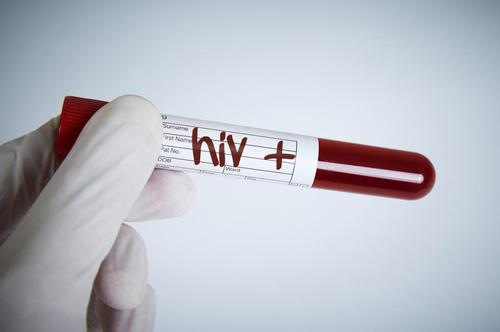HIV Life Expectancy: How Long Can You Live With HIV?
HIV (human immunodeficiency virus) is a severe condition where the immune system of the body deteriorates and loses its ability to fight infections. The virus weakens the natural immune system of the human body, making it susceptible to various health disorders.
HIV has three stages, depending on the intensity of the disease. Most people fail to survive this disease as the infection makes the human body unable to fight many different diseases. Even after years of research, there is no cure for HIV. However, the treatments currently available increase HIV life expectancy.
How Long Can You Live with HIV?
The percentage of deterioration of the immune system deterioration varies according to the stages of HIV infection, and though there is no cure for HIV yet, medical science has come up with a treatment for HIV which makes life expectancy quite close to normal. As of now, there is a difference of only 13 years in the life expectancy of an HIV-infected person as compared to a non-infected one.
During the years of 1996-97, the life expectancy of an HIV-positive person used to be 19 years after diagnosis. Currently, it has increased to 53 years with proper medication. But this number is not definite as there are many factors that affect the life expectancy.
How Long Can You Live with HIV If Treated?
First of all, you need proper treatments. Antiretroviral treatment slows down the viral progress or viral load in the body and stops HIV from moving to the next stage or developing into AIDS. The treatment requires the person to take 3-4 medications daily. Antiretroviral medication not only slows down the virus multiplication but also stops transmission of the virus. Antiretroviral medication is quite effective now and has very few side effects. Once HIV is diagnosed, regular check-ups ensure the body does not develop a resistance to the medication. In any case, if that happens, there are now alternate drugs available to break the resistance.
If the treatment is started immediately after diagnosis, the infected person can live an average of 50 more years. Life expectancy is higher in developed countries as compared to Third World countries. This is because the developed countries have more resources at their disposal.
If the HIV infection is not treated at all or poorly treated, the person will only live another 5-10 years after diagnosis. Without medication, the stages of HIV increase very quickly. Once it reaches the 3rd stage, it is not possible for a person to survive longer than 10 years. Without treatment, HIV can also develop into full-blown AIDS quickly.

Other Factors That Affect HIV Life Expectancy
1. Gender
An HIV-positive woman has a lower life expectancy than men. Though the latest research has reduced the gap, it is still 49 years in general for women while men have 53 years on average to live after diagnosis.
2. Lifestyle
The lifestyle of a person also affects the life expectancy when infected with HIV. A balanced diet and exercise are factors that help maintain the immune system. If someone is a habitual smoker or drinker, their health depletes much faster.
3. Positive or Negative
Whether you are HIV-positive or HIV-negative also determines your lifespan. There is a difference of 13 years between HIV-positive and HIV-negative infection.
4. The Stages
Life expectancy also depends on the stage of HIV infection. Someone in stage one can live longer. As the disease progresses into stages two and three, life expectancy decreases. Ultimately, people do die of HIV, but if diagnosed at a young age and treated immediately, an infected person can live a normal life with a typical life expectancy.
Possible Complications of HIV
If you carry HIV in your body, there are certain complications that can arise in the long run. As HIV kills healthy immune cells, the human body becomes more susceptible to many other infections called "opportunistic infections” because they take advantage of the body when it is too weak to fight. Opportunistic infections include diseases such as:
- Tuberculosis and other lung infections
- Recurring pneumonia
- Salmonella
- Brain and spinal cord disease
- Chronic intestinal infections
- Herpes
- Fungal infections
- Cytomegalovirus infections
Opportunistic infections like tuberculosis can become the cause of death in someone infected with HIV. However, with proper treatment and regular check-ups, this type of secondary infection can be controlled.
Tips to Staying Healthy with HIV
Having HIV does not mean you have to stop living. You can follow the tips mentioned below to keep yourself healthy:
- The best way to make sure your immune system stays strong is by starting antiretroviral treatment immediately upon diagnosis.
- Apart from medication, regular exercise and a healthy diet can also make sure that the spread of the virus is controlled.
- It is very important that you get enough rest.
- The human mind is very powerful, and your mental health significantly affects your physical health. Talking to friends, family, and support groups can also help you heal your body.
- Living your life as normal and going to the doctor for regular check-ups is both helpful and advisable.
Final Thoughts
In years gone by, an HIV diagnosis was considered to be a death sentence, but that is no longer the case. Though there is no complete cure, there are many ways to keep the disease from spreading throughout your body which is why you need to go for regular HIV screenings. With the diagnosis at an early stage and proper medical treatment, you can live a normal, healthy life.
You can watch this video to learn more about the latest study on HIV life expectancy:
YOU MAY LIKE
-
Top 6 Proven Ways to Boost Your Immunity
-
Ways to Boost Your White Blood Cells
-
Thyroid Disorders and Anxiety
